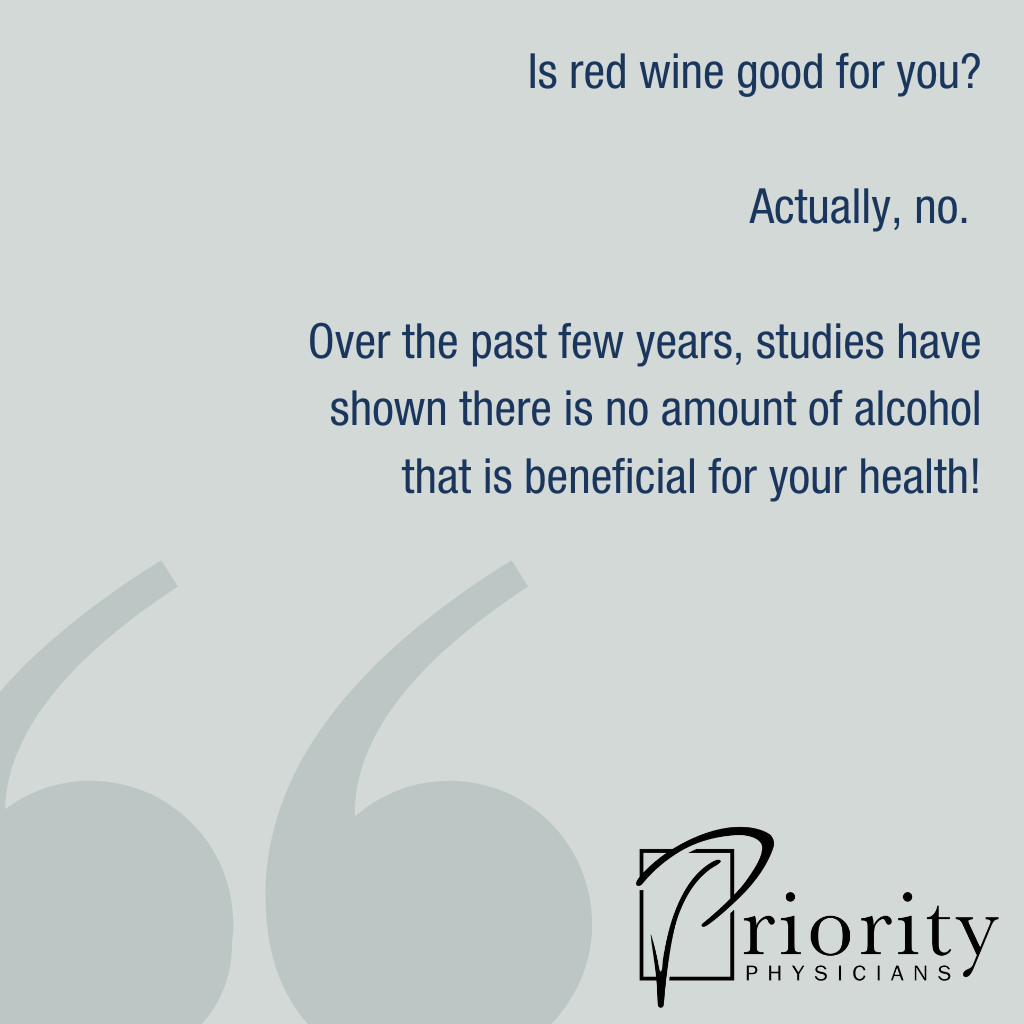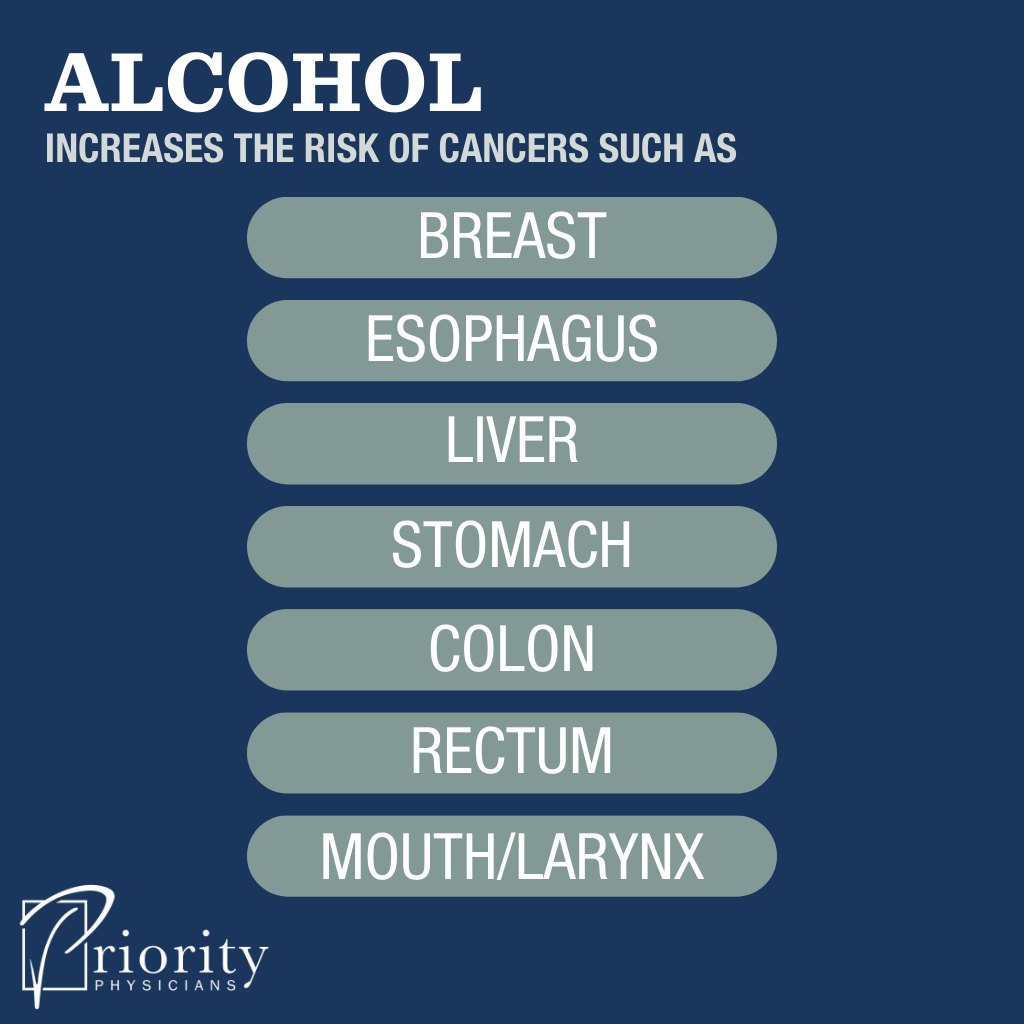One glass of red wine a day is good for your heart!
Long before I was a doctor, people stood by this claim, and many believe it to this day. Generally, when we hear something we like, we don’t want to question it.
I think this is one of those cases.
Why does this claim deserve questioning? Well, because hindsight is 20/20, we now know that the study “proving” red wine is heart healthy was riddled with limitations — specifically, it compared people who drink alcohol to people who don’t.
Let’s look at the sample population that doesn’t drink alcohol. Maybe they don’t drink because they have heart disease, or they’re on medications that don’t mix well with alcohol.
Compared to the people who were able to drink wine all the time, they were a sicker population. When conducting any study, you need to make sure your populations are well matched in terms of underlying characteristics.
So, is red wine good for you? The truth is, a small amount of wine a day might not be that harmful, but no amount is really good. You don’t need to start drinking red wine for your health’s sake.

Is Red Wine Good for You? What the Latest Studies Show
Is red wine good for you? Actually, no. Over the past few years, studies have shown there is no amount of alcohol that is beneficial for your health!
According to the World Heart Federation (WHF), even light alcohol intake is associated with an increased risk of the following cancers:
- Breast
- Esophagus
- Liver
- Stomach
- Colon
- Rectum
- Mouth/larynx
Not to mention, alcohol increases your risk of liver disease — including cirrhosis — and weakens your immune system. Alcohol also increases the risk of stroke, heart failure, and other cardiovascular issues.
The list of physical harms doesn’t even account for the adverse psychological effects of alcohol, including addiction, and the interpersonal issues that drinking can cause. In short, consumption of any amount of alcohol isn’t without risks.
(For more details on these risks, see this policy brief from the WHF.)
So, while it’s possible that small amounts of alcohol intake aren’t significantly harmful, saying that a daily glass of red wine is good for you just isn’t true.

Recommendations for Red Wine Lovers
Binge drinking — drinking more than four drinks a day — is particularly dangerous. But let’s address the “glass a day” idea. Is red wine good for you in this much smaller amount?
Right now, the Centers for Disease Control say drinking “in moderation” means two drinks or less a day for men and one drink or less per day for women. This is what’s considered “moderate” alcohol use.
Keep in mind: These are the daily recommended limits of alcohol, but that’s all subjective as well. We don’t know what a “safe” amount of alcohol is; no studies have identified one. So there may still be health risks at this level of alcohol intake.
Instead, let’s look at what happens if you don’t keep up with the “one glass of a wine a day” idea.
My patients who cut back on drinking alcohol report some notable health benefits, including better sleep quality, improved mood and energy levels, and sometimes even weight loss!
We know that when people cut back on drinking alcohol, they fall asleep faster, stay asleep longer, and wake up feeling more rested. We also know that drinking alcohol can impact weight. Some alcohols and drink mixers contain processed sugars, which can lead to high-calorie drinks that contribute to weight gain.
Our body’s systems are connected. For example, if you have decreased mood and energy levels after drinking, you’re probably not going to be as active throughout the day. Less movement throughout the day can also contribute to weight gain.
Final Thoughts on Red Wine
Is red wine good for you? Sorry, sommeliers, but there are no overall discernible benefit to drinking any amount of alcohol — even red wine.
If you’d like more information about the benefits of reducing your alcohol intake and how to reduce cravings for alcohol, consider “This Naked Mind” by Annie Grace. Alcoholics Anonymous is another helpful resource for those looking to stop drinking — a feat I’d always encourage and be happy to help you achieve.

